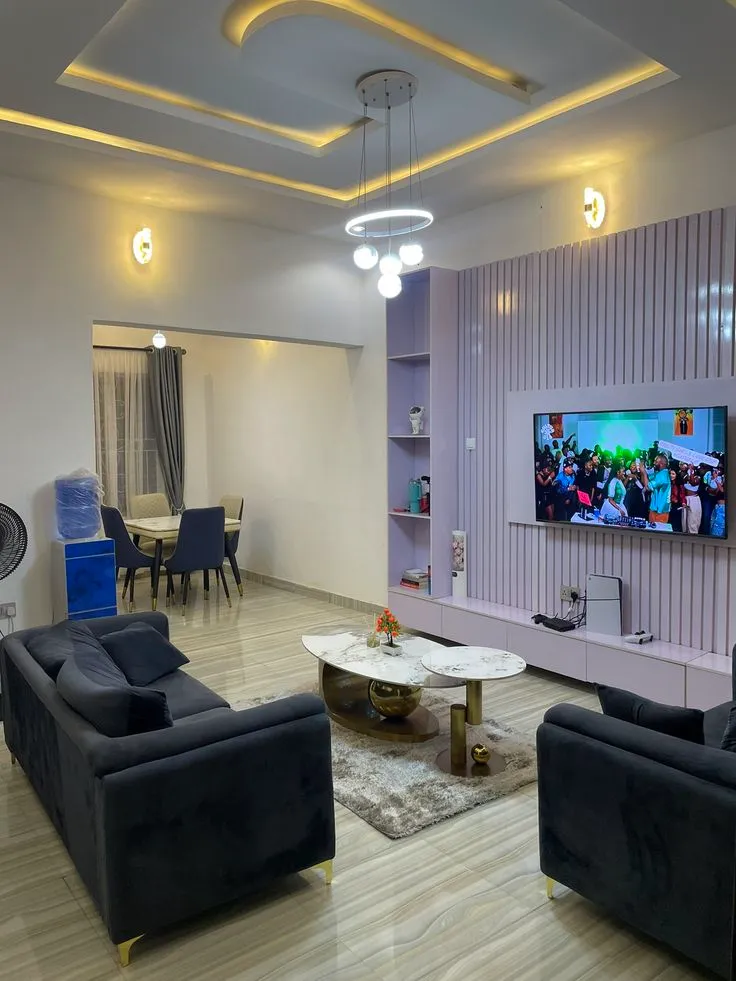
Image by Royaleblue on Pinterest
Table of Contents
Introduction
Are you into building or renovating in Nigeria, you have probably noticed how our architectural scene is buzzing with fresh ideas. Nigerian modern architectural design is all about mixing global styles with our local flair, examples are clean lines that handle the heat, materials that nod to our heritage, and tech that makes life easier.
As we hit 2025, these designs are tackling big issues like the housing shortage (over 28 million units needed, according to the Federal Mortgage Bank of Nigeria) while keeping things affordable and eco-friendly.
This post breaks down the hottest trends to inspire your next project. Let us talk about how these innovations are shaping our spaces.
Related BlogPost
Transform Your Space: Stunning Interior Architectural Design
Architectural Design Near Me: How to Choose the Right Firm for your Project
Sustainable Nigeria Architecture Design: 2025 Trends
Architectural Principles: A Beginner’s Guide
Ready to bring your vision to life? Reach out to our team at Imprexi for a free consultation on custom designs that fit your budget and style.
Historical Context and Evolution of Nigerian Architecture
To appreciate where Nigerian modern architectural design is headed in 2025, it is helpful to look back a bit. Our architecture has roots in pre-colonial styles, like the intricate mud-brick compounds in the North or thatched-roof homes in the South, designs built for community and climate.
Fast forward to colonial times, and we saw European influences with verandas and high ceilings to beat the heat. Post-independence, modernism took hold with brutalist structures in cities like Lagos, emphasizing function over frills.
Today’s designs are evolving to fix past oversights. For instance, many older modern builds ignored cultural elements, leading to what some call a “narrative deficit” in our spaces. Now, architects are blending Afrocentric touches with contemporary vibes, drawing from the NIA guidelines on heritage preservation. In Nigeria, materials account for 60% of a construction project’s cost, which is pushing more use of local options to cut expenses and boost sustainability; linking back to our traditions while pushing forward.
This evolution is not just aesthetic; it is practical. With urbanization ramping up (Nigeria’s population hitting 237 million) designs now prioritize efficiency. Think about how traditional cross-ventilation techniques are making a comeback in modern forms, reducing reliance on AC in our tropical climate.
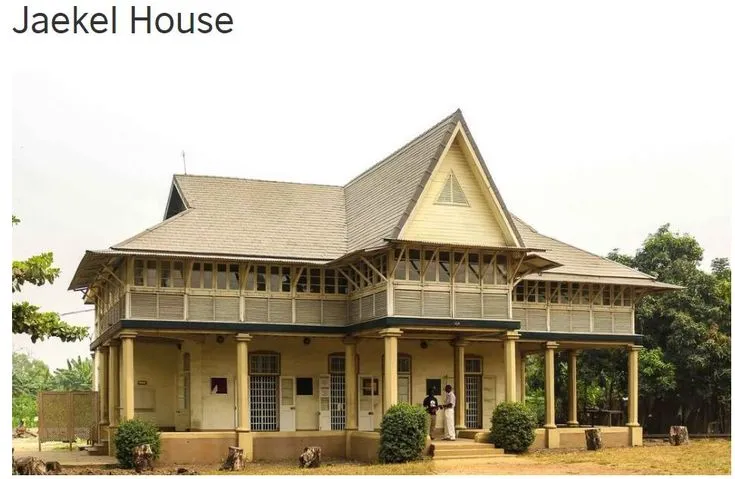
Image by Stephen Adewumi on Pinterest
Latest Trends in Nigerian Modern Architectural Design
Alright, let us get to the exciting part; the trends dominating Nigerian modern architectural design this year. Based on what is popping up in Lagos, Abuja, and beyond, these styles focus on sustainability, tech, and cultural fusion. We will break them down so you can easily pick ideas for your building.
Sustainability and Eco-Friendly Features
One big trend? Going green without breaking the bank. In 2025, Nigerian architects are all about materials that last in our humid weather, like recycled bricks or bamboo. Solar panels are standard now, with homes generating their own power to dodge those erratic grid issues. For example, eco-homes in Lekki are using rainwater harvesting systems, saving owners up to 30-40% on water bills.
What makes this so important? Nigeria is facing climate challenges, and these designs help. Biophilic elements; like indoor gardens or green walls, bring nature inside, improving air quality and mood.
Climate-Responsive Elements
Our weather demands smart adaptations, and 2025 designs deliver. Breeze blocks (those perforated concrete screens) are back, allowing airflow while adding texture. Shaded balconies and verandahs are must-haves, cutting down heat without extra energy.
Critics point out that some imported minimalist styles fail here because they trap heat. Instead, opt for cross-ventilation layouts that keep things cool naturally. In northern Nigeria, modular designs adjust to drier climates, using earth tones for better insulation.
Smart and Tech-Integrated Homes
Tech is transforming Nigerian modern architectural design. Imagine voice-controlled lights or AI-optimized layouts that predict your needs. In Lagos, luxury duplexes feature home automation for security and energy management. These are not just gadgets; they are lifesavers in busy urban life. Smart homes integrate seamlessly, with apps controlling everything from blinds to appliances. For affordability, start small with solar-powered sensors.
Cultural Fusion and Aesthetics
What sets Nigerian designs apart? That beautiful blend of modern and heritage. Afrocentric elegance means earth tones, textured walls inspired by traditional patterns, and local crafts like tubali bricks.
Popular styles include minimalist bungalows for single-floor ease, contemporary duplexes with glass facades for light, and even container homes for quick, budget-friendly builds. Glass houses are trending in upscale areas, offering panoramic views while incorporating cultural motifs.
In urban spots like Lagos, high-rises go green with vertical gardens. Northern trends lean modular for flexibility. Overall, it is about creating spaces that feel Nigerian; warm, communal, and innovative.
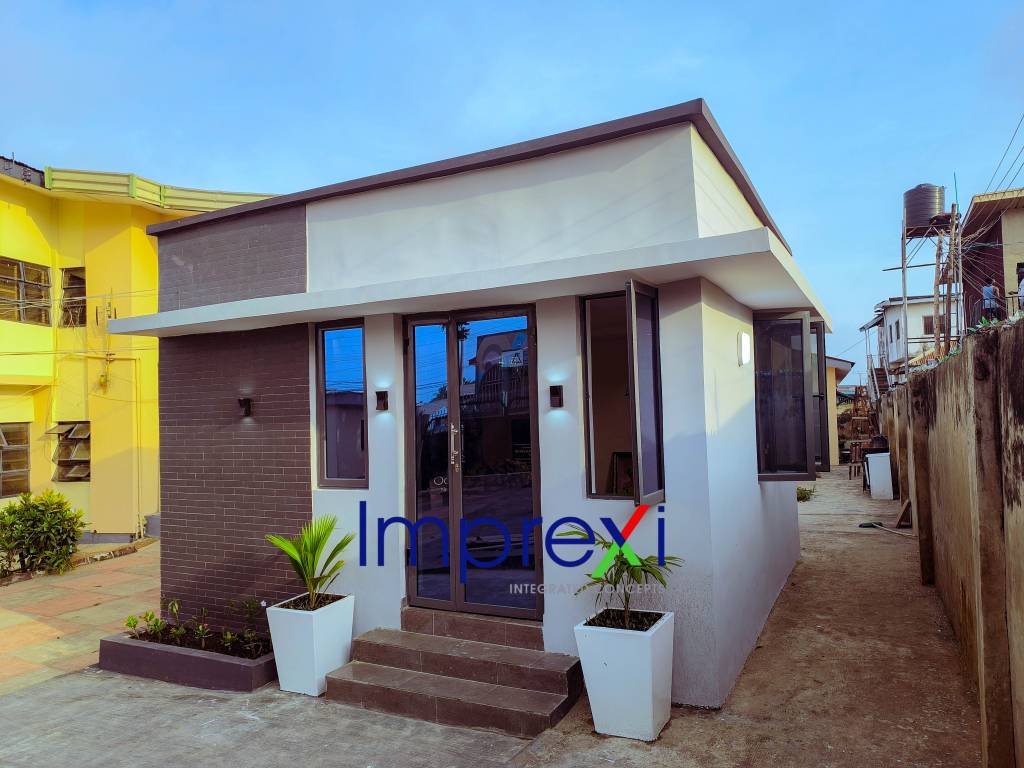
Ready to bring your vision to life? Reach out to our team at Imprexi for a free consultation on custom designs that fit your budget and style.
Urban-Specific Trends
City life influences a lot. In Lagos, expect more high-density builds with shared green spaces to combat congestion. Abuja favours brutalist revivals with sustainable twists. Emerging areas like Lekki push for luxury that is eco-conscious, like homes with rooftop solar farms.
These trends address the housing deficit head-on, making modern designs accessible.
Challenges and Future Outlook
Of course, it is not all smooth, because high material costs and skill gaps slow things down, plus AI adoption faces data hurdles in Nigeria. But the outlook is bright. By 2026, expect more vernacular revivals; bringing back old techniques with new tech.
Social chatter highlights demands for less concrete dominance and more communal areas. Architects are listening, predicting a wave of adaptive, resilient designs.
Conclusion
Wrapping up, Nigerian modern architectural design in 2025 is a game-changer; merging sustainability, culture, and tech for homes that truly work for us. These trends offer practical ways to build smarter.
Ready to bring your vision to life? Reach out to our team at Imprexi for a free consultation on custom designs that fit your budget and style.
READ MORE: Transform Your Space: Stunning Interior Architectural Design
FAQs
1. What are the most popular types of modern house designs in Nigeria for 2025?
Minimalist bungalows, contemporary duplexes, and smart container homes top the list, offering affordability and functionality tailored to urban and rural needs.
2. How does sustainability play into Nigerian modern architectural design?
It focuses on eco-materials like solar panels and rainwater systems to reduce costs and environmental impact, addressing Nigeria’s climate and energy challenges.
3. What role does technology have in the latest Nigerian architecture trends?
Tech like AI-driven layouts and home automation enhances efficiency, security, and comfort, with 46% of architects using it for optimized designs.


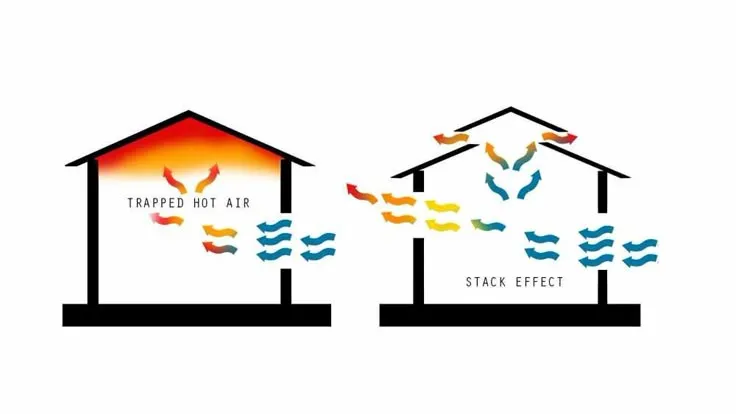
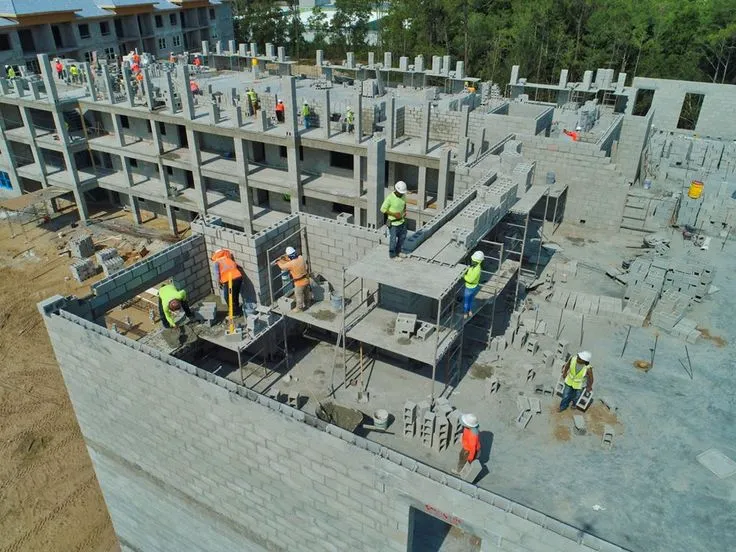

1 Comment